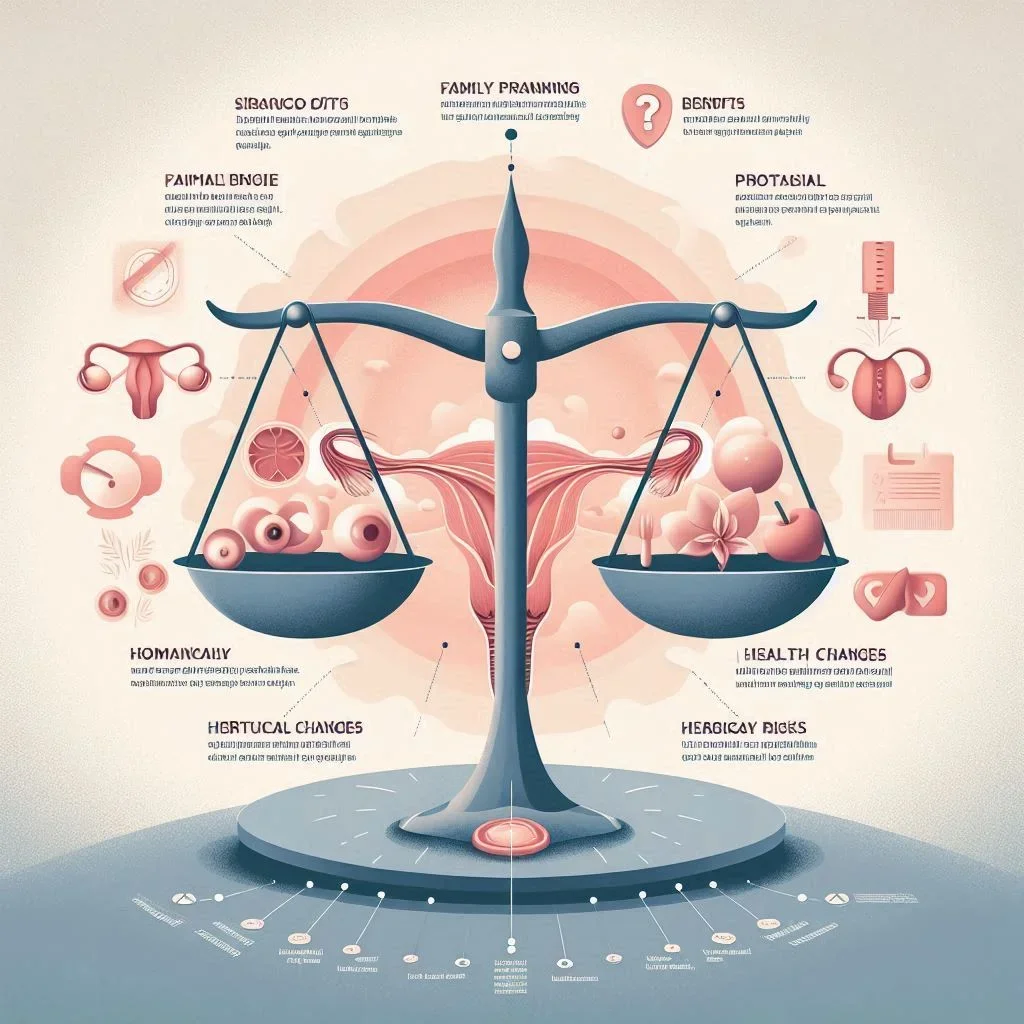
The Fertility Puzzle: When "Doing Everything Right" Still Doesn't Lead to Pregnancy
The journey to parenthood can be one of life's most profound and sometimes challenging experiences. For many couples, conception happens quickly, but for others, the path is filled with questions, disappointments, and the persistent wonder: "Why isn't it happening for us?" This comprehensive guide explores the complex landscape of natural fertility, offering evidence-based insights and expert advice for those navigating this deeply personal journey.
Understanding the Reality of Conception: It's More Complex Than You Think
Each month, even under optimal conditions, the chance of conception for a healthy couple is only about 15-25%. Dr. Alan Copperman, Director of Reproductive Endocrinology at Mount Sinai School of Medicine, explains: "Many couples are surprised to learn that human reproduction is actually quite inefficient. In my practice, I often remind patients that even in perfect scenarios, a couple only has about a one in four chance of conceiving in any given cycle."
This biological reality exists because conception requires perfect timing and conditions – from egg quality and sperm health to hormonal balance and implantation factors. According to research published in the Human Reproduction journal in 2023, approximately 85-90% of couples will conceive within one year of trying, leaving a significant percentage facing challenges despite doing "everything right."

Beyond Age: The Multi-Factorial Nature of Fertility
While advancing age does impact fertility, particularly for women, it's far from the only factor determining reproductive success.
"Age is certainly important, but I see many patients who assume it's the only variable that matters," notes Dr. Jennifer Hirshfeld-Cytron, Director of Fertility Preservation at Fertility Centers of Illinois. "In reality, fertility is influenced by a complex interplay of genetics, hormonal health, reproductive anatomy, lifestyle factors, and even environmental exposures."
Research published in Fertility and Sterility in 2022 demonstrated that factors such as ovulatory disorders, tubal issues, and male factor infertility account for approximately 80% of identified fertility challenges, with unexplained infertility representing about 15-20% of cases.
The Stress-Fertility Connection: What Science Really Says
The advice to "just relax and it will happen" has frustrated countless couples struggling to conceive. While well-intentioned, this oversimplification doesn't capture the nuanced relationship between stress and fertility.
"Chronic stress absolutely influences reproductive health, but through complex biological pathways that go beyond simply 'being too stressed to conceive,'" explains Dr. Alice Domar, Executive Director of the Domar Center for Mind/Body Health at Boston IVF and Assistant Professor of Obstetrics, Gynecology, and Reproductive Biology at Harvard Medical School.
In her groundbreaking research published in the Journal of Psychosomatic Obstetrics & Gynecology, Dr. Domar found that women who participated in mind-body programs focused on stress reduction had significantly higher pregnancy rates than control groups.
"When we're chronically stressed, our bodies produce cortisol and other stress hormones that can disrupt GnRH (gonadotropin-releasing hormone) pulsatility, potentially affecting ovulation in women and sperm production in men," Dr. Domar explains. "However, this doesn't mean that everyday stress prevents pregnancy or that relaxation guarantees it."

Lifestyle Foundations for Optimal Fertility
Creating the right conditions for conception involves addressing several key lifestyle factors:
Nutritional Optimization
"Nutrition provides the building blocks for hormones and reproductive cells," says Dr. Jessica Prescott, reproductive endocrinologist and author of "The Fertility Diet Connection." Her research at the Harvard T.H. Chan School of Public Health found that women following an anti-inflammatory diet rich in plant proteins, healthy fats, whole grains, and antioxidants had 66% lower risk of ovulatory infertility.
Specific nutrients deserve special attention:
Folate: Essential not just for preventing birth defects but also for egg quality and implantation. The American Journal of Clinical Nutrition recommends 400-800mcg daily for women trying to conceive.
Omega-3 fatty acids: Research in the Journal of Clinical Endocrinology & Metabolism shows these healthy fats improve embryo quality and implantation rates.
Antioxidants: Vitamin C, E, and selenium help protect eggs and sperm from oxidative damage, according to studies in Reproductive BioMedicine Online.
Physical Activity Balance
"Exercise affects fertility in a J-shaped curve," explains Dr. Richard Grazi, Director of Genesis Fertility in New York. "Too little exercise can lead to weight issues and hormonal imbalances, while excessive exercise can disrupt ovulation or reduce sperm production."
A 2023 study in Human Reproduction found that moderate exercise (30-60 minutes, 3-5 times weekly) was associated with improved fertility, while extreme exercise (more than 60 minutes daily) was linked to longer time to conception.
Sleep Quality
"Sleep is when much of our hormonal regulation occurs," notes Dr. Michael Breus, clinical psychologist and sleep specialist. Research from the Sleep Medicine Reviews journal demonstrates that women with sleep disorders take longer to conceive and have higher rates of pregnancy complications.

Hidden Factors That May Be Affecting Your Fertility
Even when obvious lifestyle factors are addressed, subtler issues may be at play:
Subclinical Thyroid Dysfunction
"Up to 10% of women with unexplained fertility challenges have mild thyroid abnormalities that standard testing might miss," reveals Dr. Mary Stephenson, Director of the Recurrent Pregnancy Loss Program at the University of Illinois. Her research, published in Thyroid, found that treating even subclinical hypothyroidism improved conception rates by 35%.
Vitamin D Deficiency
"Vitamin D receptors are present throughout the reproductive system," explains reproductive endocrinologist Dr. Lubna Pal from Yale School of Medicine. Her research in the Journal of Clinical Endocrinology & Metabolism showed that women with sufficient vitamin D levels (>30 ng/mL) were four times more likely to conceive through fertility treatments than those with deficiencies.
Undiagnosed Celiac Disease or Gluten Sensitivity
A surprising connection exists between reproductive health and gluten intolerance. Research published in the Journal of Reproductive Immunology found that undiagnosed celiac disease can present primarily as infertility or recurrent pregnancy loss in some women.

When to Seek Professional Guidance
The American Society for Reproductive Medicine provides clear guidelines on when to consult a specialist:
If you're under 35 and have been trying for 12 months without success
If you're over 35 and have been trying for 6 months without success
If you're over 40, consultation is recommended before trying for extended periods
If you have known conditions like endometriosis, PCOS, or prior reproductive surgeries
If you've experienced multiple miscarriages
"The biggest regret I hear from patients is waiting too long to seek help," shares Dr. Elizabeth Barbieri, reproductive endocrinologist at Oregon Reproductive Medicine. "Many assume that seeing a specialist means committing to intensive treatments, but often the journey begins with simple diagnostics that can identify easily treatable issues."
The Emotional Landscape of Fertility Challenges
The psychological impact of fertility struggles cannot be overstated. Research in the Journal of Psychosomatic Obstetrics & Gynecology found that women experiencing infertility report levels of anxiety and depression equivalent to those diagnosed with cancer or heart disease.
"The emotional toll is profound, yet often invisible," notes Dr. Catherine Racowsky, former President of the American Society for Reproductive Medicine. "Couples experiencing fertility challenges describe feeling isolated, as if their bodies have betrayed them, while the world around them continues to celebrate pregnancies and births."
Psychologist Dr. Helen Adrienne, author of "On Fertile Ground: Healing Infertility," recommends:
Joining support groups, either in-person or virtual
Setting boundaries around baby-centric events when needed
Considering counseling with therapists specialized in fertility issues
Practicing mindfulness to manage the emotional rollercoaster
Maintaining open communication with partners about needs and feelings
Integrative Approaches Worth Considering
Many patients benefit from combining conventional medical care with evidence-based complementary approaches:
Acupuncture
A meta-analysis in the British Medical Journal examined 1,366 women across seven trials and found that acupuncture improved pregnancy rates by 65% when used in conjunction with IVF treatments.
"Acupuncture appears to improve blood flow to the uterus and ovaries, regulate hormonal balance, and reduce stress," explains Dr. Jill Blakeway, founder of the YinOva Center and author of "Making Babies: A Proven 3-Month Program for Maximum Fertility."
Mind-Body Programs
"The mind-body connection in fertility is powerful," says Dr. Domar, whose program at Boston IVF has reported pregnancy rates up to 55% within six months for previously "infertile" couples. "These programs teach skills that not only support conception but also build resilience for the parenthood journey ahead."
Moving Forward with Hope and Realism
While the fertility journey can be unpredictable, understanding the complex factors involved provides both perspective and possibilities.
"The most important message I share with patients is that fertility challenges are medical conditions, not personal failures," emphasizes Dr. Eve Feinberg, Associate Professor of Obstetrics and Gynecology at Northwestern University Feinberg School of Medicine. "With advances in reproductive medicine, approximately 85-90% of couples facing fertility issues who seek treatment will ultimately build their families, though the path may look different than initially imagined."
Conclusion: Redefining Success on the Fertility Journey
The path to parenthood isn't always straightforward, but it's never without hope. Whether conception comes naturally, through medical assistance, or family building takes an entirely different form, the journey itself offers profound opportunities for growth, connection, and self-discovery.
As reproductive endocrinologist Dr. William Schoolcraft reminds us in his book "If At First You Don't Conceive": "The measure of success isn't just pregnancy, but the courage to pursue your dreams of family, the wisdom gained along the way, and the resilience developed through facing challenges that test your very core."
For those currently walking this path, remember that you're not alone, you're not doing anything wrong, and with perseverance and the right support, your family-building story can still have the ending you're hoping for—even if the middle chapters contain unexpected twists and turns.
 Add Row
Add Row  Add
Add 




Write A Comment